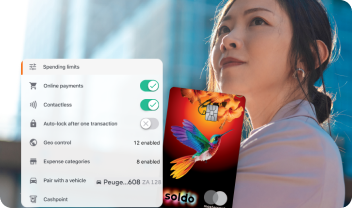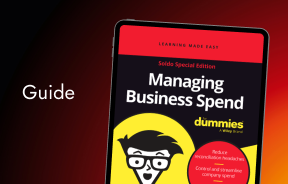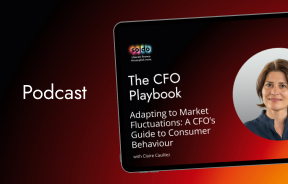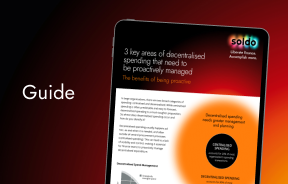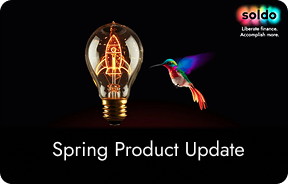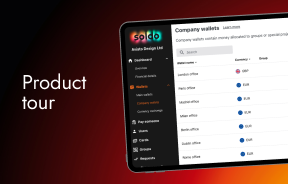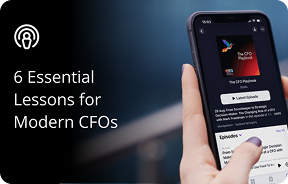Tell me about the Irish VC scene – what’s exciting in Ireland at the moment?
Well Frontline is a pan-European fund, but the Irish scene does have a few exceptional features.
One differentiator for the Irish tech ecosystem to others in Europe is that so many US tech companies land in Ireland to build their teams: we have the European headquarters of Google, Facebook, Intel, Microsoft, Sony, Airbnb, Twitter, Stripe HubSpot and probably 100 more; and they employ tens of thousands of people.
A lot of those people learn incredible skill sets from these US giants and then want to set up their own companies. So a key dynamic of the Irish tech ecosystem is that we have the world’s best entrepreneurial tech “on the job” training.
Secondly, when we started Frontline, trying to bring top-tier global funds into Europe was difficult. Yet now, looking at just the last 18 months, Sequoia, Kleiner and Index have all made significant investments in Ireland. The top international VCs recognise that it’s not just about Silicon Valley anymore; and a lot of that focus has shone towards Ireland.
The government also plays a very large part: Enterprise Ireland makes it very straightforward for up to 150 startups every year to get their first investment of €50k-€500k. It is hard and expensive to start a business: to quit a job and forfeit earnings can be extremely difficult, especially if you have a family and a mortgage. Whereas the Irish government will give entrepreneurs €50,000 relatively simply for a reasonable equity stake, which enables people who maybe wouldn’t have otherwise started a company to take that extra risk. It’s a great spur to the entrepreneurial economy.
What is the ethos and investment strategy at Frontline Ventures?
Frontline’s core focus is businesses that are changing the way other businesses use technology to succeed. We support these ventures at seed and growth stages. We also help these companies expand internationally as quickly as we can. We very strongly believe that the world is as flat as it’s ever been, and for high-growth businesses, being able to expand internationally is incredibly important. And it’s not easy!
Our seed stage work helps early-stage European companies to expand primarily into the US and other geographies; and our growth fund focuses on some of the fastest expanding growth-stage companies in the US to help launch and expand their European operations.
They heavily complement each other as many of the investors often cross over, which is very useful for our portfolio.
“One of our mottos at Frontline is ‘nobody is too early’. In fact, in the past two years, two of our term sheets included the fact that we can’t invest until the business is registered as a Company and has a bank account.”
The interesting challenge at the seed stage is evaluation. How do you evaluate early-stage companies to find the diamonds in the rough?
For context, 50% of our seed fund investments are pre-product and 80% are pre-revenue. One of our mottos at Frontline is ‘nobody is too early’. In fact, in the past two years, two of our term sheets included the fact that we can’t invest until the business is registered as a Company and has a bank account. So we have on occasion invested with nothing more than ideas on pieces of paper.
The majority of the companies we invest in don’t have a product, any traction or customers we can speak to. We therefore look at some very basic criteria:
- The market – if it even exists. Is the business solving a pain point in a large and scalable market? Thumb in the air, that’s 30% of our value judgement.
- The people – a superb founding team, 70%.
When it comes to the team, sometimes even a single Founder, we look for incredible people. We want people who are passionate about the problem they are solving. No matter how great your idea, building a company is difficult. Without passion, you simply won’t get through all the brick walls you have to run through.
The second criterion is ambition. As our companies demonstrate continued high growth, they will continue to get acquisition offers in the €10-80M range. That is enough money to completely change many Founders’ lives – and their kids’ lives too. We are looking for people who are sufficiently ambitious to sacrifice that in order to build something even bigger.
Third, and this is not discussed much in the VC world, we look for Founders with high levels of self-awareness. When you start a company, it’s very easy in the first year or two to do everything yourself. And when you then begin to make hires, it’s very easy to end up micromanaging them.
It’s counterintuitive, but entrepreneurs with little self-awareness can actually achieve a lot of early traction with raw ambition alone. However, as a Founder grows the business past 20 people, there’s no time to micromanage everybody. That’s when self-awareness really comes into play.
Entrepreneurs with poor self-awareness tend to hire people like themselves, rather than people who complement them. They also often hire people who are less capable of taking on leadership roles. They therefore build poor teams; and that can be deleterious.
So: every VC will identify talent as a key driver; for us that means passion, ambition and self-awareness.
It’s important also to say that whilst it’s great to meet a Founder with three exits under their belt, experience is not crucial. We backed Signal, in London, whose founder was 23 when we invested. We also backed Evervault, an Irish company headed up by a 19-year-old; they have just raised a large round led by Index ventures. We have Founders who have never been to college and are even speaking to some who are still in school.
Let’s turn to the growth journey. Every VC has a different answer as to how to expand into new territories. Of course, COVID-19 changes things somewhat, but expansion was never a clear journey…
The reason that VCs have given you very different answers is that unfortunately there isn’t a perfect path. We produced a guide to help companies think about expanding into the US and it ran to 90 pages!
The approach depends on your customers, your financing strategy and even the life of the Founders – some people don’t want to uproot their entire families. By the way, that is completely fine – but then you must think about other options. Different approaches are also appropriate for consumer businesses as against B2B; we only work in the B2B context.
That caveat aside, things had changed plenty even before COVID-19. When we first started Frontline in 2012/13, our advice was that to launch in the US or attract US investors, you would need a Delaware incorporation. That has changed enormously. There is ample transatlantic interest from the investment community on both sides.
Within B2B, there is also a big difference between targeting SMEs and enterprise. One of our portfolio, Pointy, was acquired by Google this year. Targeting SMEs across the US, it achieved 10,000 US customers with most of the outreach coming from Europe. Signal, meanwhile, sells large enterprise contracts, so they needed a mature US sales team.
Finally, there is of course a discussion around available talent. In one of our UK portfolio companies, the Founder didn’t move out, because one of their earliest employees had both the seniority, the ability to eat, sleep and breathe the culture of the company; and the inclination to travel. He was an amazing ambassador to fly the flag for the business.
I would always have someone from the home team move to the US; because otherwise something of the culture is inevitably lost. It’s usually the Founder, because the US is a bigger opportunity with more enterprise customers, but that’s not written in stone.
So there’s no single answer to the migration challenge, but 70% of our portfolio companies have expanded into the US or raised further capital from the US. A fund like ours can help them do that.
And what about COVID-19? It must change the landscape even for ultra-digital SaaS propositions?
It definitely does. I think that companies which have already expanded over, even in a small way, can continue to build remotely. But those who have not moved over yet are likely to delay. They’re rightly waiting to see what happens with the market.
We do have one portfolio company still actively selling in the US with no operations there. Their plan was to expand a team into the US by now; they have paused the move and are successfully selling to US customers from Europe. So it is possible.
And again, it also depends on the target sector. If you’re servicing a sector that has been particularly badly hit by COVID, it will be even harder to build the business when you can’t travel and be there face-to-face. But entrepreneurs are resilient and resourceful: I hope that the slow-down will only be for a short period.
“Building a great company requires hiring great people, so what I love to see in the first 18 months is that Founders prove that they can hire high quality people… they might not show revenue traction, but it tells us that this CEO is able to pitch a vision to attract really high quality talent.”
Elsewhere in the growth cycle, what are you looking for to show the right trajectory?
In a perfect world, we invest in a company and they suddenly start making so much revenue that they never need financing ever again. That does happen, but it’s rarely the case!
As we usually invest in businesses where the product hasn’t even been built yet, we’re looking for other signals. Most of all, again, building a great company requires hiring great people, so what I love to see in the first 18 months is that Founders prove that they can hire high quality people.
Signal, for example, which I mentioned earlier, hired a Head of Sales from one of its largest competitors, a business worth in the high hundreds of millions. To me, that’s an incredible sign: they might not show revenue traction, but it tells us that this CEO is able to pitch a vision to attract really high quality talent.
Other companies might not be able to afford those people, but even they can pick up amazing advisors or line up investors for the next round. There are lots of ways to show that you can attract great talent.
Second, we want to see early customer traction. We want to see customers using the product and loving it. I want to talk to customers who are almost better at selling me the company than the Founder. When you hear that, you know that the business is clearly solving a pain point and on the path to something substantial in its market and valuable to investors.
 Managing Business Spend For Dummies:...Spend management can make the...
Managing Business Spend For Dummies:...Spend management can make the... Adapting to Market Fluctuations: A...Nestle's Claire Caulliez looks beyond...
Adapting to Market Fluctuations: A...Nestle's Claire Caulliez looks beyond... The key to managing decentralised...Large enterprises have overcome centralised...
The key to managing decentralised...Large enterprises have overcome centralised... Managing Business Spend For Dummies:...Spend management can make the...
Managing Business Spend For Dummies:...Spend management can make the... Adapting to Market Fluctuations: A...Nestle's Claire Caulliez looks beyond...
Adapting to Market Fluctuations: A...Nestle's Claire Caulliez looks beyond... The key to managing decentralised...Large enterprises have overcome centralised...
The key to managing decentralised...Large enterprises have overcome centralised... Managing Business Spend For Dummies:...Spend management can make the...
Managing Business Spend For Dummies:...Spend management can make the... Adapting to Market Fluctuations: A...Nestle's Claire Caulliez looks beyond...
Adapting to Market Fluctuations: A...Nestle's Claire Caulliez looks beyond... The key to managing decentralised...Large enterprises have overcome centralised...
The key to managing decentralised...Large enterprises have overcome centralised... Managing Business Spend For Dummies:...Spend management can make the...
Managing Business Spend For Dummies:...Spend management can make the... Adapting to Market Fluctuations: A...Nestle's Claire Caulliez looks beyond...
Adapting to Market Fluctuations: A...Nestle's Claire Caulliez looks beyond... The key to managing decentralised...Large enterprises have overcome centralised...
The key to managing decentralised...Large enterprises have overcome centralised... Spring LaunchDigital innovation is reshaping every...
Spring LaunchDigital innovation is reshaping every... Bank Transfer AccessSoldo’s new feature gives you...
Bank Transfer AccessSoldo’s new feature gives you... Product TourSee how Soldo simplifies spend...
Product TourSee how Soldo simplifies spend... Spring LaunchDigital innovation is reshaping every...
Spring LaunchDigital innovation is reshaping every... Bank Transfer AccessSoldo’s new feature gives you...
Bank Transfer AccessSoldo’s new feature gives you... Product TourSee how Soldo simplifies spend...
Product TourSee how Soldo simplifies spend... Spring LaunchDigital innovation is reshaping every...
Spring LaunchDigital innovation is reshaping every... Bank Transfer AccessSoldo’s new feature gives you...
Bank Transfer AccessSoldo’s new feature gives you... Product TourSee how Soldo simplifies spend...
Product TourSee how Soldo simplifies spend... 3 signs your spend management...Struggling to find the right...
3 signs your spend management...Struggling to find the right... 6 essential lessons for modern...Modern CFOs balance strategy, innovation,...
6 essential lessons for modern...Modern CFOs balance strategy, innovation,... Combat Fake Receipts & Fraud...Combat AI-generated fake receipts with...
Combat Fake Receipts & Fraud...Combat AI-generated fake receipts with... 3 signs your spend management...Struggling to find the right...
3 signs your spend management...Struggling to find the right... 6 essential lessons for modern...Modern CFOs balance strategy, innovation,...
6 essential lessons for modern...Modern CFOs balance strategy, innovation,... Combat Fake Receipts & Fraud...Combat AI-generated fake receipts with...
Combat Fake Receipts & Fraud...Combat AI-generated fake receipts with...





